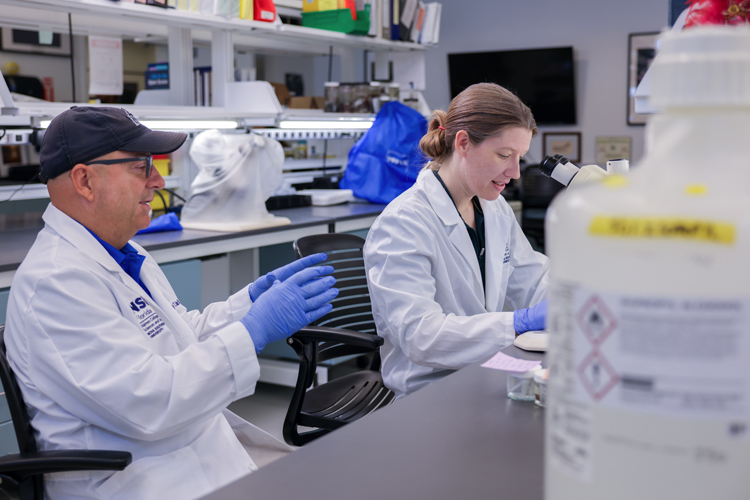Researcher
J. Matthew Hoch, Ph.D. Professor
Parker Science Building - Room 104
(954) 262-7978
Digital Curriculum Vitae (CV)
Click here to view the works and career accomplishments of Jeffrey Hoch.
Research Focus
The Ecology, Evolution, and Environment laboratory has been established to provide researchers on the NSU main campus opportunity to work on scientific research questions in the environmental field. The laboratory is used by Dr. Hoch and other faculty for their research projects, by several graduate students for their thesis research, and by undergraduates working with Razor's Edge on environmental questions or for independent research credit (for example BIOL 4990, ENVS 4990, or MBIO 4990).
Broadly, the laboratory allows researchers to apply the scientific method to ecological, evolutionary, and environmental questions. This is an important lab space because this work often involves large, messy tools and working with animals. Understanding the interactions between ecology, evolution and human effects on the environment is critical for understanding how nature works and how humans are impacting it.
Research Activities
Presently, Dr. Hoch is leading a team of student researchers on questions concerning the evolutionary ecology of the Eastern Mosquitofish, Gambusia holbrooki. This is one of the most abundant fish in the Everglades and is thus extremely important as a predator of mosquitoes and as a prey item for wading birds. The work lies at the intersection of ecology, evolution, and environmental science.
Research questions include:
- What environmental factors influence the movement of mosquitofish in and out of wetlands whose depth varies over the year?
- How does variation in morphology, behavior, and swimming performance affect the likelihood of mosquitofish migrating across the Everglades landscape and using wetlands that periodically dry out?
- How does the management of invasive aquatic plants affect populations of Eastern Mosquitofish and other small fish?
Techniques used to answer these questions include field surveys in the Everglades and other bodies of water, laboratory behavioral trials in which fish are filmed exploring unknown environments (which are then analyzed on a computer to deduce differences in boldness, exploration likelihood, and other variables related to "personality") and swimming performance trials in a recirculating swim chamber.
Social Media

We are seeking to understand how Everglades fish make decisions about moving throughout the system and how these decisions are influenced by restoration activities.
J. Matthew Hoch, Ph.D.

